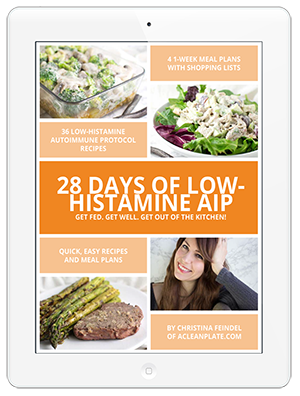10 Things That Can Sabotage Your Health

While a healthy, balanced diet can go a long way toward alleviating symptoms of certain chronic health problems and just generally making you feel better, it’s not a cure-all and it’s not the only lifestyle factor that impacts our health. If you’ve been eating well for a while now and just aren’t seeing the results you hoped for, there are a few other lifestyle factors you can consider addressing.
1. Sleep
Everyone needs a good night’s sleep. You’ve probably felt the effects of poor sleep at some point in your life: Irritability, sugar cravings, depression, poor cognitive function, and, of course, tiredness. Just one night of bad sleep can throw our bodies out of whack, and “catching up” with a nap or extra-long sleep the next night isn’t really how sleep works. Two or three bad nights will have a negative effect on digestion, libido, blood sugar, blood pressure, mental health… pretty much everything. It may not be the most exciting thing in the world, but prioritizing sleep is a must. While it’s not always easy or even possible, try to get around 8 uninterrupted hours every night. I personally feel best with at least 9 hours of sleep, with a good hour of quiet alone time on either end to wind down and wake up with.
2. Stress
You know how being stressed out can ruin even good news? How it can make your favorite music sound grating or your beloved, adorable, perfect pet annoying? Stress does the same thing to your healthy lifestyle. If your body is in a constant state of fear, anxiety, and agitation, your healthy food probably isn’t digesting very well and all that extra cortisol is going to ruin your sleep. Although it can be difficult, stress management is a vital part of living well in today’s hectic world. Try to reduce your mental and physical burdens as much as possible, either by reducing your exposure to them or asking for help.
3. Exercise
Most of us probably don’t get enough exercise, but too much can be bad, too. Most experts recommend at least 30 minutes of motion a day, whether it’s walking, swimming, dancing, running, biking, lifting weights, or whatever else gets your heart rate up. This is in addition to any other movement you might do every day (your body has probably gotten used to climbing the stairs up to your apartment after two years, so no, that doesn’t count). You should feel comfortably tired after a workout, not exhausted to the point of collapsing, and if you notice that you have diarrhea after every run or fewer periods than you did before you started exercising, you might need to dial it back. Like diet, exercise takes some tinkering to find the right one and the right amount for you.
4. Not Enough Veggies
We all know what not to eat when we set out to “get healthy”. Cutting sugar, simple carbs, and processed foods might seem daunting, but we accept going in that it’s all part of the plan. It’s what we’ve heard our whole lives to avoid. What we often don’t realize is that we need to replace those foods with vegetables, not “healthier” versions of the same thing. My Celiac diagnosis was my wake-up call here. While it’s nice that we can get gluten-free bread and pasta and continue eating our usual meals, the ingredients in those items often cross-react for me. I was gluten free but still felt like I was eating gluten. Once I started using veggies as the bulk of my meals instead, I was amazed at how much better I felt. Don’t forget to eat nutrient-dense stuff!
5. Too Much Meat
There’s a misconception that diets like Paleo and the autoimmune protocol are all about meat. Beef and bacon all day, baby! But that’s not how it actually works. Meat should take up about 1/4 of your plate, with–you guessed it–a variety of veggies and maybe a little bit of fruit making up the rest. And of the meat you do eat, omega-3-rich seafood or nutrient-dense organ meats should comprise the bulk… not bacon.
6. Not Planning Ahead
How often do you find you have nothing healthy to eat when you’re hungry? Before I started batch cooking, it happened to me all the time. I’d come home from work exhausted, relax for a bit, and then realize I was ravenous. But when I went to look in the fridge… there wasn’t anything to make a meal out of. When you’re tired, stressed out, or busy, cooking might be the last thing you want to do, especially if you have to go to the store before you can do it. So make sure you have a meal plan every week. Grab what you need on the weekend, prepare as much as you can ahead of time, and keep leftovers in the freezer for a quick microwave meal on a busy, tired weeknight.
7. Being Too Rigid
There’s no one right way of eating for everybody. And what we know about nutrition only scratches the surface of how diet interacts with human health. We’re learning new things constantly and a lot of what we thought we knew ten years ago turned out to be wrong. So, don’t stress out over whether or not a random food like chia seeds are healthy. Don’t feel like you have to have maca in your smoothies to get the most out of them. And certainly don’t put activated charcoal in everything. Real, sustainable nutrition is affordable and accessible: It’s in your grocery store’s produce aisle, not bottled up as a supplement or ground into an “antioxidant-rich” powder. Instead of breaking the bank or sending yourself into a stress spiral over what all the influences are doing, or what the rules are, or what’s “bad”, give yourself a break. There’s wiggle room to find what works best for your body, your needs, and your schedule.
8. Temptation
Of course, there are those of us on the other end of the spectrum, giving ourselves a bit too much wiggle room. This was me in the first few months after my Celiac diagnosis. I kept eating a few things with gluten in them because I wasn’t convinced I would feel that much different if I quit… and they were right there in my pantry or the vending machine at work. There’s a reason purging your pantry is such a common piece of advice: Having food around that tempts you to stray off the path to your goals usually results in, well, straying off the path to your goals. While everyone feels tempted from time to time, and it’s usually okay to give in every now and then (barring food allergies or serious conditions like Celiac), there are things you can do to help reduce the chance of being tempted, such as avoiding the baked goods aisle at the grocery store and keeping sweets out of the house. For the temptations you can’t avoid, see my post What to Do When You Have Cravings. (I did feel 100% better when I actually quit eating gluten.)
9. Isolation
Some of us are so busy with work and our home lives we don’t have time to just hang out with anyone. Some of us are so sick we can’t hang out with anyone. But it’s important for our mental health to try to find opportunities to connect with loved ones. Maybe you can carve out a game night with your friends or family. Maybe you can manage a phone call to someone who always makes you laugh. Worst case scenario? Put on a show or podcast that lightens your mood, ideally something that makes you feel like you’re part of the conversation or community. For me, watching Critical Role or Dropout’s GameChanger feels a lot like hanging out with good friends, because that’s what everyone on the cast is, and it seems like we have shared values. It’s not the perfect substitute for real-time human interaction, but it’s better than nothing when I’m too swamped, sick, or tired for anything else. Get that social high wherever you can manage.
10. Cheat Days
I mean, some people can get away with this kind of stuff. If you can gorge yourself on pizza and ice cream on Saturday and feel just fine as you get back to veggie-laden meal prep on Sunday, more power to you. If you can have that occasional chocolate bar when you need to and not let it become a regular thing that tempts you every waking moment even though it gives you headaches, that’s awesome. If an all-nighter feels like no big deal, enjoy it while it lasts. But when we feel like we’ve been doing everything right and aren’t seeing the results we wanted, it’s important to be honest with ourselves. Have I been cutting corners and making excuses? Is today’s horrible surprise depression maybe because I stayed up too late last night thinking I’d be okay, even though I know poor sleep bums me out? Am I constipated as a fluke orrrr did I not eat a single vegetable yesterday? Give yourself grace, but if a habit is causing a serious issue, be honest with yourself about what you could do better.
Looking for Low-Histamine Recipes?
28 Days of Low-Histamine AIP combines low-histamine foods with the anti-inflammatory autoimmune protocol in a 28-day meal plan designed to jump start and simplify your diet change. The meal plan includes 36 simple, satisfying recipes including dishes like Chicken Schawarma, Cabbage Roll Stir-Fry, and Chimichurri Steaks. You’ll be amazed at all the flavors still available to you!

